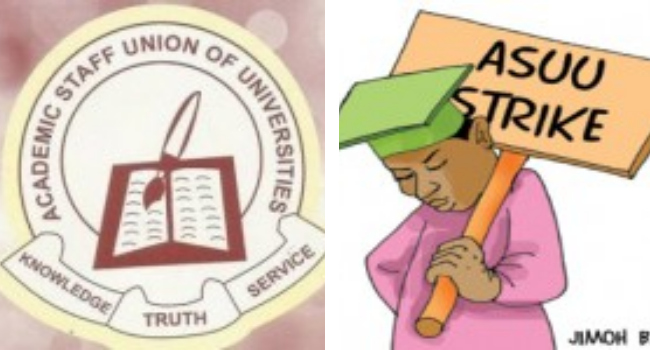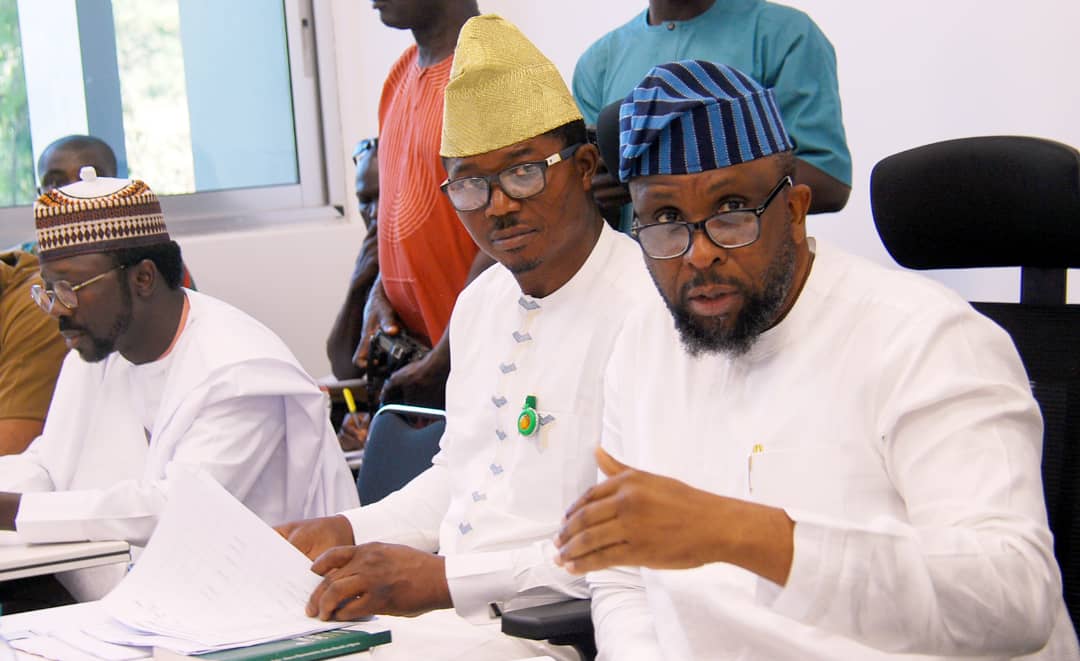News
ASUU wants backlog of unspent funds utilised for tertiary education

By Francesca Hangeior
The Academic Staff Union of Universities, ASUU, has called for the utilisation of backlog of unspent funds allocated to tertiary education.
ASUU warned that the continued stagnation of these resources could hinder the growth and development of the nation’s tertiary institutions.
This came as Tertiary Education Trust Fund, TETFund, engaged stakeholders at a one-day strategic interaction with heads of beneficiary institutions.
At the meeting, held in Abuja, yesterday, the Executive Secretary of TETFund, Mr. Sonny Echono, said the strategic engagement marked a new chapter for the board, where it aligns efforts with stakeholders to optimise performance and enhance the quality of Nigeria’s tertiary education.
He said that with the recent increase in education tax from 2.5 percent to 3 percent, TETFund was poised for even greater impact, improving infrastructure, academic programs, and accessibility for all students.
“As heads of TETFund beneficiary institutions, you play a pivotal role in actualizing the mandate of the Fund. It is crucial that we engage constructively to set a clear course for the Fund’s direction and operational priorities.
“TETFund’s purpose is to empower our nation’s human capital, addressing the urgent need for capable, skilled professionals across all sectors. Established in response to the deficits in our tertiary education sector, TETFund began as the Education Tax Fund in 1993, transitioning in 2011 to its current form with a commitment to enhancing the quality of Nigeria’s public tertiary institutions through Education Tax contributions.
“The increase last year in the Education Tax from 2.5 percent to 3 percent authorised by President Bola Tinubu represents a significant stride for TETFund. This change reinforces the government’s dedication to strengthening Nigeria’s educational framework.
“We urge all stakeholders to actively engage in building these partnerships. Let us explore innovative ways to connect our institutions with industry leaders, fostering a symbiotic relationship that benefits both our students and the economy,” he added.
Speaking, the President of ASUU, Prof. Emmanuel Osodeke, said university leaders must fight for themselves and not rely on others to negotiate their future.
He warned that the proposed tax changes to TETFund could drastically affect Nigerian universities’ funding, emphasizing the need to ensure these bills don’t pass if we truly care about our education system.
News
See Photos of World’s Tallest and Shortest Women Meet for Afternoon Tea in London

The world’s tallest woman and the world’s shortest woman met for the first time this week, sipping tea from china cups — and bonding over what they have in common while celebrating their differences.

Jyoti Amge, shortest woman, and Rumeysa Gelgi, tallest woman, meet for the first time and share afternoon tea
Jyoti Amge, shortest woman, and Rumeysa Gelgi, tallest woman, meet for the first time and share afternoon tea

Jyoti Amge, shortest woman, and Rumeysa Gelgi, tallest woman, meet for the first time and share afternoon tea
Rumeysa Gelgi, from Turkey, stands at 7 feet and 0.7 inches, while Jyoti Amge, from India, is 2 feet and 0.7 inches.
Jyoti Amge, shortest woman, and Rumeysa Gelgi, tallest woman, meet for the first time and share afternoon tea

Jyoti Amge, shortest woman, and Rumeysa Gelgi, tallest woman, meet for the first time and share afternoon tea
Jyoti Amge, shortest woman, and Rumeysa Gelgi, tallest woman, meet for the first time and share afternoon tea
Jyoti Amge, shortest woman, and Rumeysa Gelgi, tallest woman, meet for the first time and share afternoon tea

Jyoti Amge, shortest woman, and Rumeysa Gelgi, tallest woman, meet for the first time and share afternoon tea
“You’re so beautiful,” said Gelgi, 27. “Thank you — you too,” replied Amge, 30.
Their meeting, over afternoon tea at London’s Savoy Hotel on Tuesday, came ahead of Guinness World Records Day, which is held annually in November to mark record-breaking achievements and encourage people to attempt records. The pair have been honored as “World Record icons” in the 70th anniversary edition of the Guinness World Records book.
Story continues below advertisement
“Meeting Jyoti for the first time was wonderful,” Gelgi said in a release Wednesday. “She’s the most gorgeous lady. I was waiting to meet her for a long time.”
Gelgi said the pair bonded over their love for makeup, jewelry and doing their nails.
Video footage showed them sitting down for tea, cakes and sandwiches stacked next to them, with the London Eye visible from the window.
Amge said in the release that she was “so happy to look up” and see the world’s tallest woman, whom she called “good-natured.” She added that it was difficult at times for the pair to make eye contact “due to our height difference.”
“Guinness World Records is all about celebrating differences,” its editor in chief, Craig Glenday, said in a statement ahead of Guinness World Record Day, which is on Thursday.
“By bringing together these two amazing, iconic women, they can share their perspectives on life with each other and, also, with us,” Glenday said.
Gelgi’s record-breaking height is due to a rare genetic condition called Weaver syndrome, which causes rapid growth, according to the National Organization for Rare Disorders.
Story continues below advertisement
The primary symptom is growth and bone development that occurs faster than usual, making those affected taller than average. People with Weaver syndrome may have rigid muscles and difficulty extending their elbows or knees.
Gelgi used a walking aid for support during the pair’s meeting. Her case of Weaver syndrome was the 27th ever diagnosed and the first in Turkey, according to Guinness World Records.
Weaver syndrome is generally caused by changes in the EZH2 gene, according to the NORD, though the organization notes that some people with Weaver syndrome do not have a mutation in the gene.
Story continues below advertisement
Amge, an actor who played the character of Ma Petite in the television series “American Horror Story,” has a genetic growth disorder that occurs in the early stages of fetal development, known as achondroplasia.
According to Johns Hopkins, the condition causes shorter bones, abnormally shaped bones and shorter stature. While the genetic defect can be passed from parent to child, in about 80 percent of cases, achondroplasia results from a spontaneous mutation that occurs in the developing embryo.
On Thursday, Gelgi shared photos on Instagram of the two exploring London despite the cold weather, posing side by side in front of Tower Bridge.
News
Speaker Abbas Decries Gross Inadequacy In Health Sector Despite Annual Allocation

News
Reps Demand Details Of Project Undertaken From Ministry Of Solid Minerals In 2024 Budget

-

 News15 hours ago
News15 hours agoDHQ Gives Updates on on Arrest, Trial of Simon Ekpa in Finland
-

 News15 hours ago
News15 hours agoJapa: 1 of 4 Nigerians want to leave the country – NBS
-

 News14 hours ago
News14 hours agoSenate mandates military to free LGs under B’Haram control
-

 News14 hours ago
News14 hours agoOUTREACH: Senator Manu concludes 2-day ICT program for constituents, distributes over 500 laptops to students (Video/Photos)
-

 News14 hours ago
News14 hours ago2027: Obasanjo’s knock on INEC reopens push for electoral reform
-

 News15 hours ago
News15 hours agoSimon Ekpa Sent To Prison
-

 News15 hours ago
News15 hours agoI’m not too young or inexperienced to run for Lagos Governor – Speaker Obasa
-

 News15 hours ago
News15 hours agoNigerian Catholic religious Sister Uti wins $1.2 million Opus Prize








